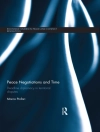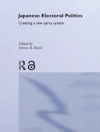Political violence does not end with the last death. A common feature of mass murder has been the attempt at destroying any memory of victims, with the aim of eliminating them from history. Perpetrators seek not only to eliminate a perceived threat, but also to eradicate any possibility of alternate, competing social and national histories. In his timely and important book, Unchopping a Tree, Ernesto Verdeja develops a critical justification for why transitional justice works. He asks, "What is the balance between punishment and forgiveness? And, "What are the stakes in reconciling?" Employing a normative theory of reconciliation that differs from prevailing approaches, Verdeja outlines a concept that emphasizes the importance of shared notions of moral respect and tolerance among adversaries in transitional societies. Drawing heavily from cases such as reconciliation efforts in Latin America and Africa and interviews with people involved in such efforts Verdeja debates how best to envision reconciliation while remaining realistic about the very significant practical obstacles such efforts face Unchopping a Tree addresses the core concept of respect across four different social levels political, institutional, civil society, and interpersonal to explain the promise and challenges to securing reconciliation and broader social regeneration.
Verdeja Ernesto Verdeja
Unchopping a Tree [PDF ebook]
Reconciliation in the Aftermath of Political Violence
Unchopping a Tree [PDF ebook]
Reconciliation in the Aftermath of Political Violence
购买此电子书可免费获赠一本!
语言 英语 ● 格式 PDF ● 网页 240 ● ISBN 9781439900567 ● 出版者 Temple University Press ● 发布时间 2009 ● 下载 3 时 ● 货币 EUR ● ID 5885712 ● 复制保护 Adobe DRM
需要具备DRM功能的电子书阅读器












